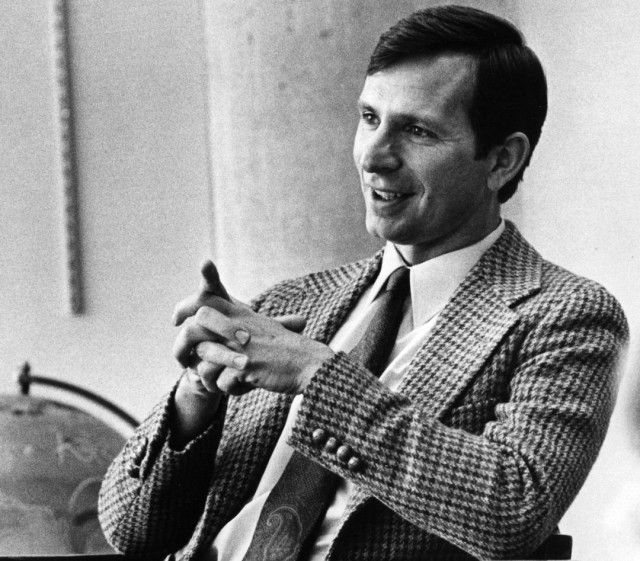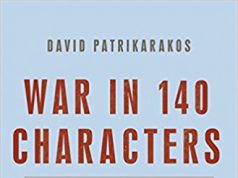The Canadian academic introduced millions of post-Soviet Ukrainians to formerly supressed aspects of the Ukrainian national story and helped lay the foundations for a growing sense of national identity. This article first appeared in Business Ukraine Magazine.
On July 29, 2016, well-known Canadian historian and Ukrainian community activist Orest Subtelny was laid to rest in Toronto. He died at the age of 75 after battling for a number of years with Alzheimer’s disease. Subtelny will be best remembered as the author of ‘Ukraine. A History’ – a ground breaking book that appeared on the eve of Ukrainian independence and allowed a generation of newly liberated Ukrainians to gain familiarity with a Ukrainian perspective on history that had long been taboo. He was in many ways the founding father of modern Ukrainian history.
Orest Subtelny’s departure is a great loss to Ukrainian scholarship. For more than a quarter of a century, Toronto and specifically the University of Toronto Press has led the way in the modern writing of Ukrainian history. The first important work published was Orest Subtelny’s ‘Ukraine. A History’, which appeared in 1988 during Glasnost. It weny on to enjoy three additional editions in 1994, 2000 and 2009. The 1988 original made a truly enormous contribution to Ukrainian nation building. Republished in the Ukrainian language in 1991 in Kyiv when Ukraine was still part of the Soviet Union, it represented a major departure from official Soviet texts. The book was published in Russian in 1994. Subtelny told me both versions were subsequently reprinted – unofficially as was the tradition in the often lawless 1990s era – with an overall print run totalling over one million copies. This unauthorized republishing of his masterpiece certainly cost Subtelny in terms of unpaid royalties, but it helped cement his place in Ukrainian histoy. The impact of this book simply cannot be overstated. Working for a USAID consultancy project in 1994 in Donetsk, I remember being stunned at seeing Orest Subtelny’s ‘Ukraine. A History’ already being used as a standard text at the university.
When beginning the research and writing of his ‘Ukraine. A History’ in 1985-1986, Orest Subtelny could not have known that Ukraine would become independent or that his book would have such a strategic impact upon the country’s nation building process. In many ways, he was literally in the right place at the right time. When the USSR disintegrated, there was a scholarly vacuum in independent Ukraine and it took the best part of the following decade for new histories and school textbooks to appear. Paul R. Magocsi’s widely acclaimed ‘A History of Ukraine’ was first published in English in 1996, with the Ukrainian-language edition appearing a year later. Other important works followed at around the turn of the millennium. None has been able to recapture the potency or immediacy of Subtelny’s well-timed tome.
Ukrainians literally snapped up Subtelny’s ‘Ukraine. A History’ because it met the widespread post-Soviet hunger for Ukrainian historical perspectives supressed for decades by the Kremlin. If a million copies really were printed, one has to assume that millions of Ukrainians read it in both Ukrainian and Russian languages. We can assume the book was also a popular source for the writing of the new generation of school textbooks that appeared following the Soviet collapse.
Orest Subtelny and Paul R. Magocsi, both worked in Toronto and both of their most celebrated history books were published by the University of Toronto Press. Nevertheless, these two titans of modern Ukrainian historical studies approached their subject matter in strikingly different ways. Orest Subtelny began writing his ‘Ukraine. A History’ when Ukraine was not an independent state and therefore his work follows the same logic as the doyen of Ukrainian history, Myhaylo Hrushevsky, of a history of a stateless Ukrainian people. Paul R. Magocsi, on the other hand, began writing his ‘A History of Ukraine’ when Ukraine was an independent state. He therefore followed the traditional Western approach of writing the more compartmentalized history of Ukrainians and other ethnic groups living within the borders of Ukraine. This traditional Western approach to history was also multicultural in that ‘A History of Ukraine’ includes information about ethnic Ukrainians and also Russians, Poles, Crimean Tatars and Jews. The histories of Ukraine written by Orest Subtelny and Paul R. Magocsi actually complement each other by providing two parallel approaches to analysing the historical past of Ukraine.
The last time I worked with Orest Subtelny was during the 2010 Ukrainian presidential elections when I organised a two-day forum of 40 leading Western academics and think tank experts in Kyiv. It was no secret that the forum was tied to the Yulia Tymoshenko election campaign, as among Western experts there was no support for her main challenger, Viktor Yanukovych. Orest Subtelny attended the forum and was warmly greeted by Yulia Tymoshenko, who had been one of the millions in the 1990s whose Ukrainian national consciousness had grown through reading his ‘Ukraine. A History’. He did not mince his words about Yanukovych, who he described as a “thug” and “mafia don”. This kind of talk was typical of Orest Subtelny. He was not an ivory tower academic. He was an internationally acclaimed historian and community activist whose roots in the Ukrainian community meant his focus was on Ukrainian national identity, the struggle for independence, and impact of achieving statehood. His death is a huge loss but it also provides the nation with the opportunity to reflect on Subtelny’s role in helping to shape today’s Ukrainian national identity.
Taras Kuzio is a Senior Research Fellow at the Canadian Institute of Ukrainian Studies, University of Alberta. His most recent book ‘Ukraine: Democratization, Corruption and the New Russian Imperialism’ (Praeger, June 2015) surveys modern Ukrainian political history from 1953 to the present.




































